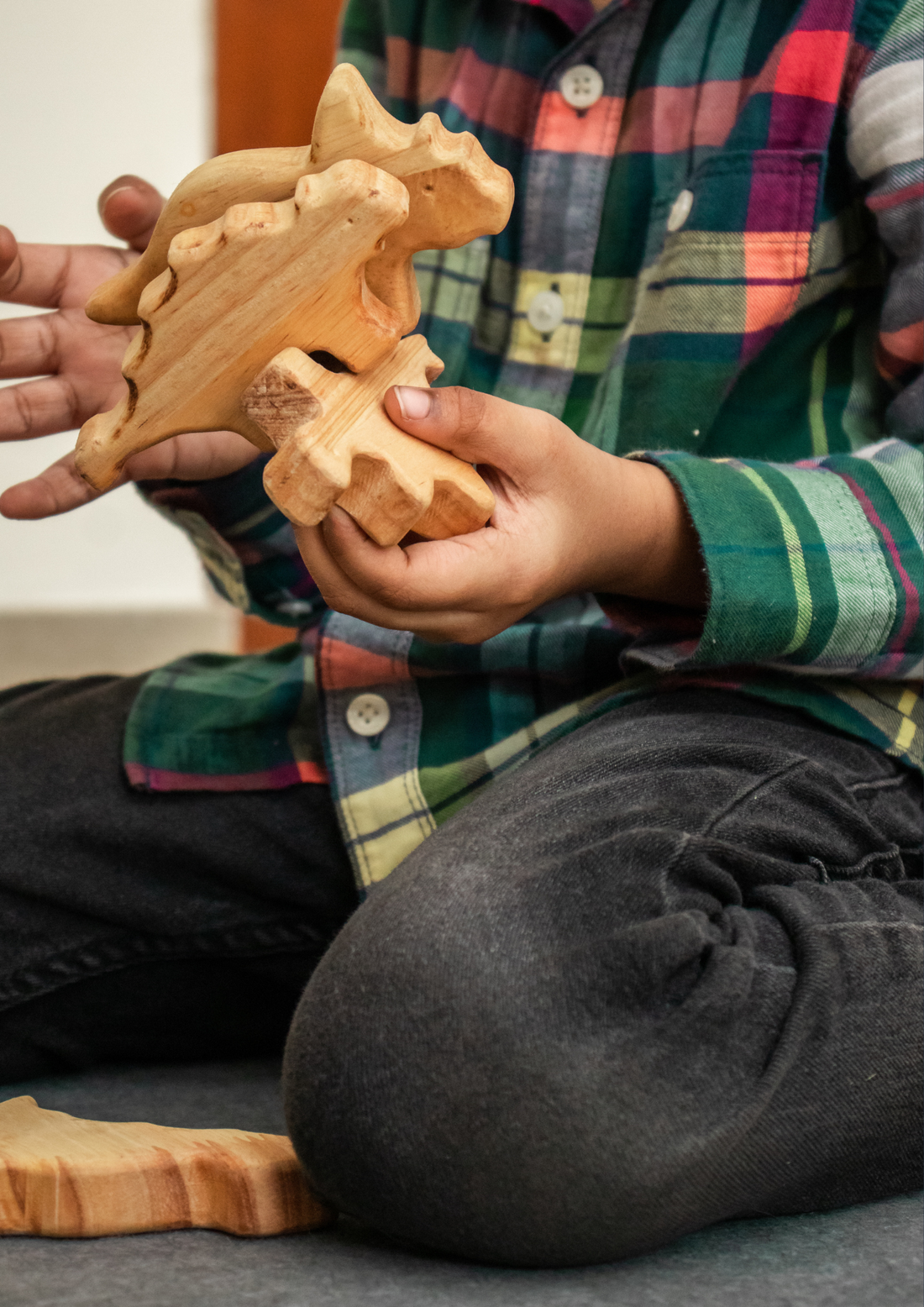In the realm of childhood development, the choice of toys plays a significant
role in shaping cognitive and emotional growth. Let's delve into the fascinating
psychology of play, focusing on the unique impact that wooden toys can have
on a child's development.
To begin with, understand the sensory experience.
Wooden toys offer a tactile and sensory-rich play experience, engaging multiple senses simultaneously. The tactile feedback and weight of wooden toys provide a unique sensory stimulation that enhances a child's overall play experience.
Encourage imaginative play through simplicity.
Wooden toys, often characterized by simple designs, encourage open-ended and imaginative play. The lack of predefined functions allows children to use these toys in diverse ways, fostering creativity and problem-solving skills.
Promote concentration and focus.
Wooden toys often require a higher level of engagement and concentration. The absence of flashy lights or automated features prompts children to focus on the task at hand, contributing to the development of sustained attention and concentration.
Cultivate fine motor skills and coordination.
Many wooden toys involve intricate movements and manipulations, supporting the development of fine motor skills and hand-eye coordination. Activities such as stacking, sorting, and building with wooden blocks contribute to these essential developmental milestones.
Foster a sense of control and autonomy.
Wooden toys, by nature, are often simpler and less prescriptive than their electronic counterparts. This simplicity grants children a sense of control over their play, promoting autonomy and independence in decision-making.
Create opportunities for social interaction.
Wooden toys, especially those designed for group play, facilitate social interaction among children. Collaborative activities such as building structures or playing board games with wooden pieces enhance communication and social skills.
Instill a sense of durability and longevity.
Wooden toys are known for their durability and longevity. The enduring nature of these toys not only promotes sustainability but also provides a sense of continuity and familiarity, contributing to a child's sense of security and comfort.
Spark emotional connections to the natural world.
The organic and natural feel of wooden toys fosters a connection to the natural world. This connection can instill an appreciation for the environment and a sense of responsibility for the world around them.
Encourage mindfulness and presence in play.
The simplicity of wooden toys encourages children to be present in the moment, fostering mindfulness in play. This mindful engagement contributes to a child's overall well-being and emotional development.
In conclusion, the psychology of play is a rich and intricate field, and wooden toys play a pivotal role in shaping the cognitive, emotional, and social development of children. By understanding the impact of these toys on sensory experiences, creativity, social skills, and more, we can appreciate the unique contribution of wooden toys to a child's holistic growth.
